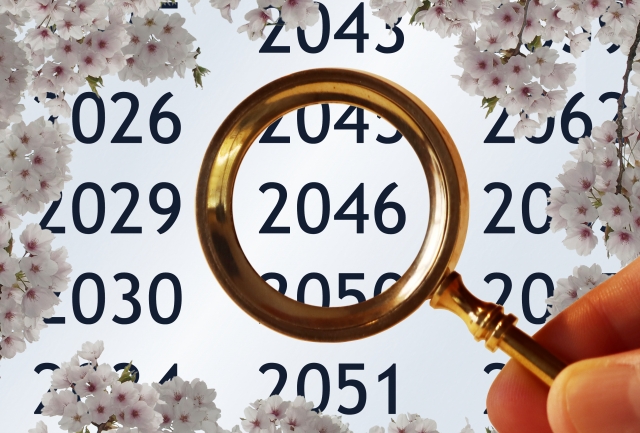The Reason Behind the Absence: Junior High Entrance Exams
In Japan, there’s a phenomenon where more than half of 6th-grade students stop attending school in January.
The reason? Entrance exams for junior high schools.
In Japan, students who wish to attend private or national junior high schools must take entrance exams at the age of 12.
Since elementary and junior high schools are part of compulsory education, students who don’t take entrance exams typically attend their local public junior high schools. However, in metropolitan areas like Tokyo, competition for junior high school admission is especially intense.
Reference URL (Japanese):
https://dot.asahi.com/articles/-/245574?page=1
The article highlights several reasons for this trend. (The following is a summary.)
In Japan, it is said that over half of sixth graders stop attending school in January to prepare for junior high school entrance exams. The main reasons for this include preventing infectious diseases like influenza and securing study time. Some parents even keep non-exam siblings at home, sparking debate about whether this approach is excessive. Additionally, divides often form between students taking the exams and those who are not, leading to a loss of class unity. While entrance exams are considered important, concerns are growing over the long-term effects of such practices on relationships and the negative impacts of an overemphasis on academic ranking.

Why Take Junior High Entrance Exams at 12?
You might wonder why students as young as 12 are preparing for competitive entrance exams. Several factors contribute to this trend:
- State-of-the-Art Facilities
Private and national junior high schools often boast modern facilities, such as extensive libraries, indoor heated swimming pools, and well-equipped cafeterias. Many schools also offer overseas trips and international exchange programs, which are particularly appealing for families aiming to nurture globally minded students. - Avoiding Local Public Schools
Public junior high schools generally group students of all academic levels together in the same classes. In contrast, private and national schools admit students with similar academic abilities, creating an environment that many parents consider more advantageous for learning. - Easier Path to University
Private schools often have strong recommendation systems that help students gain admission to prestigious universities. Additionally, affiliated junior high schools allow students to progress seamlessly to university without taking additional entrance exams. - Skipping High School Entrance Exams
Many schools operate under the “junior and senior high school integrated system,” meaning students don’t have to take entrance exams again at age 15 to progress to high school. For families, this eliminates the pressure of multiple exams, leaving only the university entrance exam at 18.
Since 12-year-olds are still young, parents often play a significant role in deciding to pursue junior high entrance exams.
Why Students Skip School to Prepare
The reasons for skipping school in January, as noted in the article, include the following:
- Avoiding Illness
January is peak season for illnesses like influenza and norovirus. Falling sick would not only hinder study time but could also jeopardize the ability to sit for exams if a student is unwell on the test day. To avoid this risk, some students stay home in the weeks leading up to the exams. - Focusing on Exam Prep
The final stretch before the exams is crucial for reviewing weak subjects and practicing past papers. Since regular elementary school classes don’t align with the exam syllabus, many students choose to skip school to focus on their preparations at home.
My Junior High Exam Experience
I also took junior high entrance exams when I was 12. I applied to a national university-affiliated junior high school as well as a private one.
The results? I passed the written exam for my first-choice national school but failed in the second round, which was a lottery. As a child, I remember thinking, “Why does my admission depend on a random draw after all that studying?”
However, this was 25 years ago. Today, the lottery system has been abolished, and admission is now solely based on academic performance.
Although I was accepted into a private school, my family couldn’t afford the tuition, so I attended a local public junior high school.
I’ll share more about my exam experiences and the pros and cons of junior high entrance exams in a future post.
A Manga That Explains Japan’s Junior High Exams
A popular manga titled Nigatsu no Shosha (Winners in February) offers a fascinating depiction of Japan’s junior high entrance exams. Although there isn’t an English version yet (as of January 10, 2025), the manga has been adapted into a TV drama and is widely acclaimed in Japan.
Synopsis:
The story follows Kuroki Kurodo, a former star tutor at the top cram school for junior high exams. He transfers to a mid-tier cram school as its headmaster, aiming to help 6th-grade students achieve success within a year. The narrative captures the struggles and triumphs of various students from diverse backgrounds as they prepare for their exams, guided by Kuroki’s unique teaching methods and insights.
Key Characteristics of the Protagonist, Kuroki Kurodo:
- A charismatic tutor with a cool demeanor, who views tutoring as a “service industry” rather than pure education.
- Though seemingly cold, he demonstrates sharp insight into his students’ needs and helps them overcome personal and academic challenges.
Notable Quotes:
- “Your success is thanks to your father’s financial power and your mother’s madness.”
- “Until the day of the exam, February 1st, your abilities can still improve.”
If you’re curious about Japan’s junior high entrance exams, this manga provides an excellent introduction.
Conclusion
I hope this post helped you better understand Japan’s junior high entrance exam culture. While the downside of skipping school in January is notable, there are also undeniable benefits.
Stay tuned for future posts, where I’ll delve deeper into the advantages and disadvantages of junior high entrance exams in Japan!
